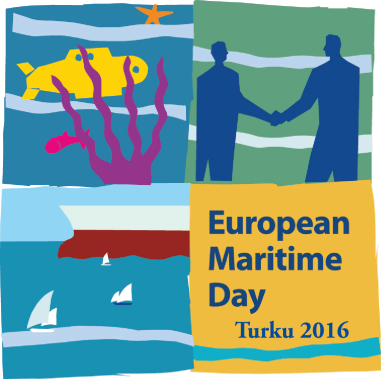WMU President Speaks at European Maritime Day

On 19 May, President Doumbia-Henry spoke at European Maritime Day in Turku, Finland, on the topic of Improving Ocean Governance. Noting the United Nations projection that the total population of the Earth is likely to be around 15 billion in 2100, the President emphasized the importance of the United Nations 2030 Sustainable Development Agenda to implementing sustainable principles in key human activities. WMU has committed to the UN 2030 Agenda of which Goal 14 addresses the conservation and sustainable use of the oceans, seas and marine resources for sustainable development.
President Doumbia-Henry noted the Ocean Economy in 2030 reportrecently published by the Organization for Economic Co-operation and Development (OECD) which shows the rapid growth of ocean industries. The President further highlighted the issues that arise from 64% of marine waters being beyond national jurisdiction and 230 countries having free access to navigation and resources on the high seas. “When we are looking at the legal situation in this respect, we have to consider implementation issues in relation to a number of important instruments reflecting legal gaps for a number of areas and industries. This is often combined with a fragmented approach in the establishment of a legal regime that may be able to cover the emerging ocean industries. There is a lack of coordination and often differing regional approaches that may hamper the emerging ocean industries,” stated the President.
Based on these factors, President Doumbia-Henry maintained there is cause for concern regarding safety and environmental protection. She referred to the Deepwater Horizon accident of 2010 as an example of “fragmented organizational approaches with a large number of different players, different legal and safety standards, as well as complex and not always fully tractable socio-technical systems.” The President proposed that a key component in discussing ocean governance is stakeholder integration via the tool of Marine Spatial Planning and the specific guidelines developed by UNESCO. The President went on to discuss the work of the International Maritime Organization (IMO) and the risk-based decision-making tools that have been developed by the IMO.
President Doumbia-Henry maintained that “education and research institutions have a key role to play in “building bridges in fragmented maritime and ocean sectors.” She referred to the two new M.Sc. specializations being offered by WMU as of September 2016, in Maritime Energy Management, and in Ocean Sustainability, Governance and Management. “With these initiatives, we have embarked to work in a more integrated way in order to bridge the divide in maritime and ocean issues,” stated the President.
This year marked the tenth annual European Maritime Day. The conference theme for 2016 was “Investing in Competitive Blue Growth – Smart and Sustainable Solutions”. The goal of the conference is to provide a forum for input that will shape future policies as well as identify the practical steps needed to drive transformational change in the blue economy and the wider integrated maritime policy agenda.
http://www.wmu.se/news/president-speaks-european-maritime-day
trace affiliate link | Patike – Nike Air Jordan, Premium, Retro Klasici, Sneakers , Iicf
